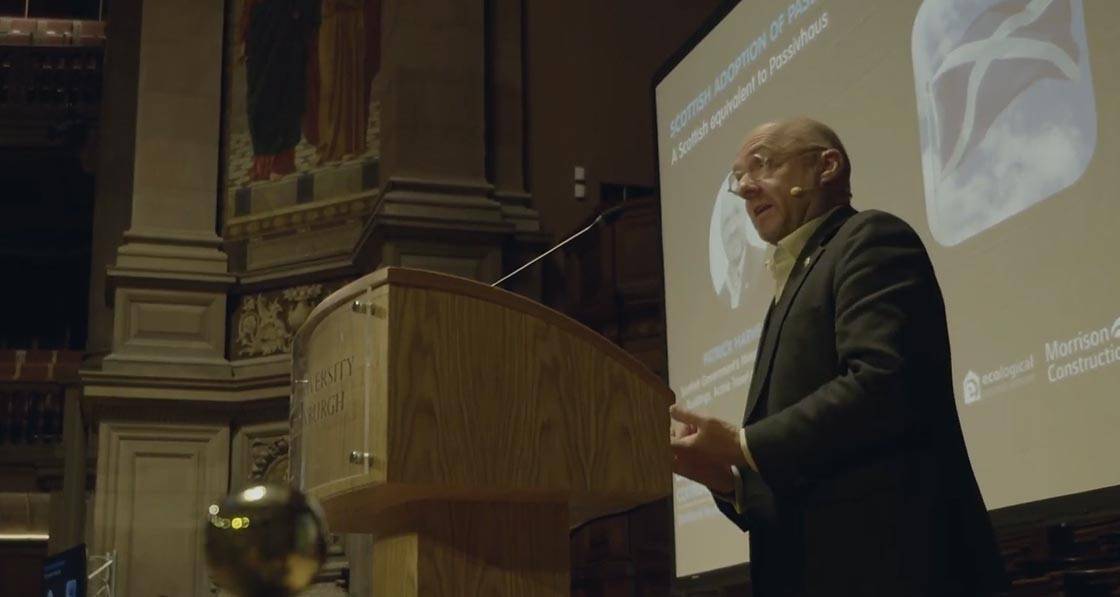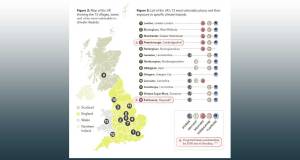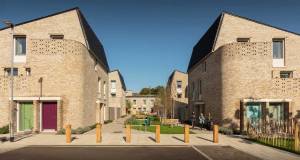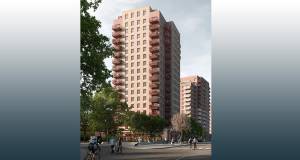
- Government
- Posted
Scotland committed to continuing passive house journey
Patrick Harvie MSP, the Scottish government’s minister for zero carbon buildings, active travel and tenants' rights, was a keynote speaker at the UK Passivhaus Conference in Edinburgh on 17 October, and shared his vision for energy efficient and low carbon buildings in Scotland.
This article was originally published in issue 46 of Passive House Plus magazine. Want immediate access to all back issues and exclusive extra content? Click here to subscribe for as little as €15, or click here to receive the next issue free of charge
In January 2023, the Scottish government announced plans to introduce new minimum environmental design standards for all new build housing to meet a ‘Scottish equivalent’ to the passive house standard. Harvie gave an update on how the policy is developing. A cross-industry working group is currently working through the policy details, with a thorough consultation on the proposals due to begin in 2024.
Minister Harvie said: “I am very pleased that Scotland is hosting this year’s conference, reflecting the leadership shown through our intent to introduce a Scottish equivalent of the passive house standard.
“Improving the energy performance of our new homes and buildings is essential to cut overall energy use and help end our reliance on fossil fuels, which exposes everyone to volatile prices.
“The passive house standard encourages the design and construction of low energy buildings, which complements commitments already made in the Bute House Agreement. This is about delivering high quality, low energy and healthy buildings for people to live in that are built to the standards to which they are designed.”
Passivhaus Trust research and policy director Sarah Lewis commented: "Scotland is leading the way in the UK – and the world - with its commitment to delivering comfortable, affordable and low carbon housing.
Building on the Scottish government’s leadership, our conference has explored the practical and policy aspects of scaling up a passive house equivalent standard in Scotland, with discussions on standards, tools, certification, and expanding passive house training and the supply chain."
The conference showcased passive house projects across Scotland, from Fife Council’s super-sized 23,000 m2 Dunfermline Learning Campus to Midlothian Council’s ambitious social housing programme delivering over 200 passive house council homes. The conference also featured Scotland’s first passive house school – Riverside Primary School for Perth and Kinross Council – and the City of Edinburgh Council’s passive house schools’ programme. It is estimated that there are 35 passive house schools currently underway or in the pipeline in Scotland.
Sarah Lewis said: “An innovative funding mechanism from the Scottish Futures Trust has encouraged the building of schools to the passive house standard in Scotland. Projects receiving funding need to meet a very clear energy target and funding may be reduced based on any performance gap post-completion.
The passive house standard effectively eliminates the performance gap, de-risking the securing of funding. It has been impressive how swiftly the industry, supply chain and clients have adjusted to delivering to the passive house standard in the education sector.” More Scottish passive house projects are showcased at: ukphc.org.uk/scottish-showcase.
The Passivhaus Trust is actively engaging with the Scottish construction industry to help it scale up to deliver the Scottish government's ambition for a Scottish equivalent to the passive house standard.
Free resources, training, and guidance are available at www.passivhaustrust.org.uk
Related items
-
 September’s AECB environmental construction conference seeks to spark debate among industry experts
September’s AECB environmental construction conference seeks to spark debate among industry experts -
 Climate report warns overheating crisis threatens UK
Climate report warns overheating crisis threatens UK -
 Sustainable building leaders crowned at Exemplar Awards
Sustainable building leaders crowned at Exemplar Awards -
 Barratt launches record passive house scheme
Barratt launches record passive house scheme -
 Green homes and finance join forces for growth
Green homes and finance join forces for growth -
 Irish and British associations unite for conference as passive house explodes
Irish and British associations unite for conference as passive house explodes

